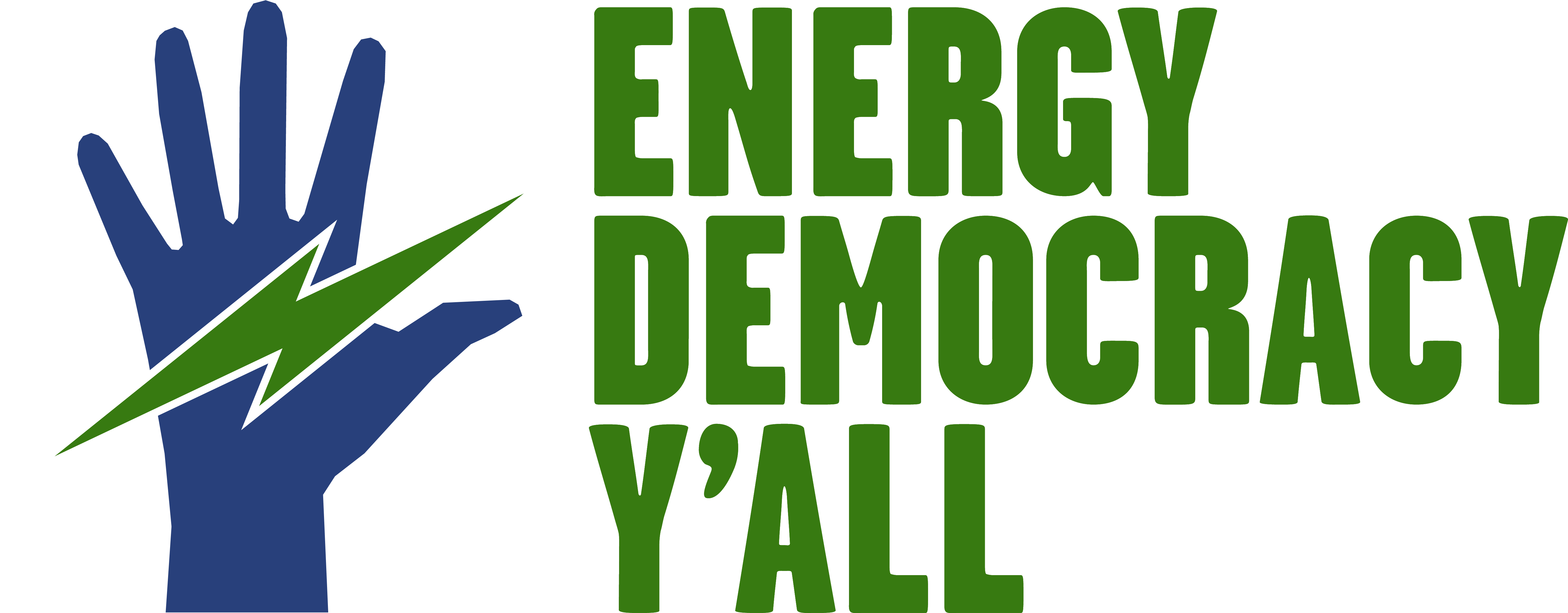Energy Democracy is what happens when people decide to show up and be part of their energy system. It’s a movement made up of people like you who want to help solve the climate crisis, reduce poverty and create wealth and jobs in their own communities.
The path to Energy Democracy includes rejecting the agenda of energy monopolies, reclaiming our energy systems under local, democratic control, and restructuring to a fair, life-sustaining and renewable energy-based system for all.
Across the country, people are already walking the path to Energy Democracy and showing that change is possible.
Here are a few ways that regular people are paving the way.
Stepping Up and Fighting Back
For years, residents in a neighborhood next to one of Duke Energy’s coal ash dumps in Bobby Jones’ hometown of Goldsboro, N.C., complained of getting sick. But no one connected the dots until Bobby learned how toxic the ash really was, and he’s been working to hold Duke Energy accountable ever since.
A retired N.C. Department of Health and Human Services employee, Bobby stepped up to defend the predominantly African-American neighborhood, founding the Down East Coal Ash Coalition to fight for proper cleanup of the ash and joining with the statewide Energy Justice NC coalition to stand up against Duke Energy’s monopoly control.
As Bobby has learned, monopolies especially prey on minority, indigenous and low-income communities, but “as long as you embrace good principles and your concerns about your fellow citizens and your community, that’s the way to go.”
Powering Their 0wn Future
Across the country, communities that are tired of constant price increases and lack of renewable energy options from monopoly utilities are taking matters into their own hands to create a brighter — and cleaner — future.
In Letcher County, Ky., four community-led organizations fed up with Kentucky Power are working on plans to install their own combined 190 kilowatts of solar electricity, making it the largest renewable energy project in the county’s history.
The groups’ enthusiasm has spread to other groups in their community, with one local business pursuing its own 30-kilowatt system.
Reclaiming 0wnership
One of the most powerful things people are doing to advance Energy Democracy is to literally reclaim the electric grid from big monopolies.
For instance, citizens of Winter Park, Fla., decided to drop their monopoly utility, Progress Energy, and form a city-owned “municipal” utility in 2003. In the years since, the new utility has both turned a profit for the town and provided its residents with electricity at cheaper rates than Progress Energy offers. Eighteen other towns and cities have already taken similar steps.
Similar efforts are happening with electric cooperatives in our region. Although co-ops are technically “owned” by the residents who get electricity from them, they are often managed as unaccountably as the private monopolies. When members of South Carolina’s Tri-County Electric Cooperative discovered that its board of directors was paying itself more than triple the national average, nearly 1,500 member-owners drove to St. Matthews, S.C., in August 2018 to vote out the co-op’s entire board and limit the pay of future boards.
Similarly, citizens group PVEC Member Voices in East Tennessee, which advocates for member rights in Powell Valley Electric Cooperative, in 2018 successfully petitioned to make meetings open to the public. The group has also run candidates for the board and is introducing a bylaws amendment to ensure more transparent decision-making.



